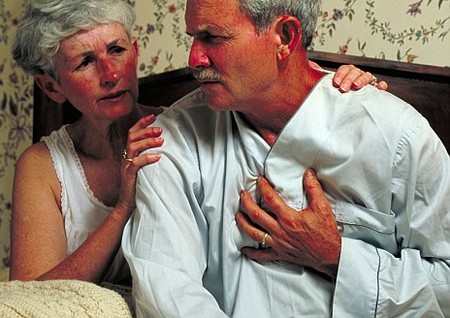A family is a unit and what happens to one of its members can send ripples through to all the others no matter how young.
John says: ‘I remember hearing about a teenage boy whose father went into hospital for a heart operation. The child really started rebelling and ended up seeing a counselor. It emerged that the child had been left out of the picture completely; it was mother and father who coped with everything and the child was angry at his father for having a heart problem. His way of reacting was to play up. That made such an impact on me; I was determined we would be open with our children.’

How much you decide to tell your children will depend very much on what your condition is and their ages. Very young children may not need to be told very much if you simply have angina which is being treated. However, if you have been rushed to hospital with a heart attack or been taken in for surgery or another procedure, even young children will need to know in simple terms what has happened.
Fiona says: ‘In a way it was easier that our children were so young because there was only a limited amount they could understand. We told them that Dad had to go for an operation and would be in hospital for a while. I took them to visit him a couple of days later and later on he showed them his scar. That seemed a very natural thing to do. Natalie, who was one, didn’t know much and Christopher, who was three, didn’t really react. I remember he made John a card with all the nurses on it. But Christine, who was then seven, was very shocked by the scar. We went through what had happened but there is only so much you can tell. There is no point in giving them a load of information that goes over their heads.’
Older children and teenagers can understand more and may benefit from a more detailed explanation. However, they may feel irritated by what they perceive as demands to return to the family fold at a time when they are struggling with their own task of establishing a separate identity. Fiona says: ‘By the time John had his second bypass five years later they were all much older, but by then we’d started the Cardiac Club, so they’d seen cardiac patients and it was less of an event. We still had a few tears on the day, mind you.’
Older children may still need the opportunity to air their fears and worries, and if they find it difficult to talk to you it may help if they can confide in an understanding grandparent, teacher, school counselor or adult friend.